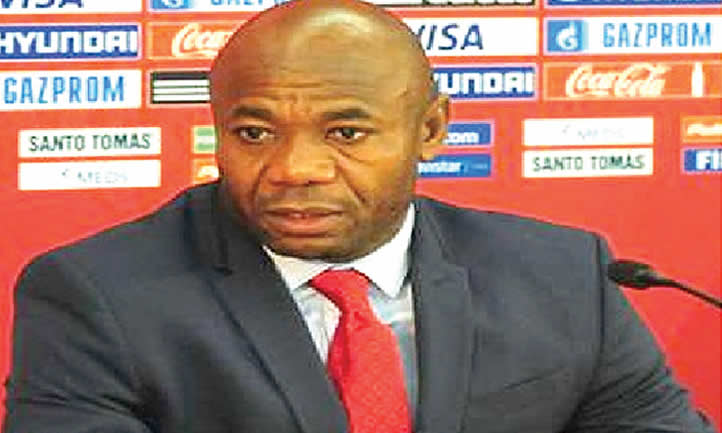The Withering Bloom of Nigerian Football: A Crisis of Lost Potential
Nigerian football, once a vibrant breeding ground for teenage sensations, finds itself grappling with a disconcerting reality: the dwindling presence of young stars on the international stage. This decline contrasts sharply with the global trend of youthful brilliance, epitomized by players like Spain’s Lamine Yamal, who illuminated Euro 2024. While the world witnesses the rise of teenage prodigies, Nigeria’s current national team boasts only one player, Samuel Chukwueze, who debuted as a teenager. This scarcity of young blood raises critical questions about the state of youth development and the opportunities afforded to budding talents within the Nigerian football ecosystem. The insights of seasoned coaches, including Emmanuel Amuneke, a former African Footballer of the Year, shed light on the systemic issues plaguing the nation’s footballing future.
Amuneke, whose own career blossomed under the mentorship of the late Yemi Tella, emphasizes the crucial role of youth development and the provision of early opportunities. He attributes Spain’s success in nurturing young talents to their unwavering belief in youth and their commitment to providing structured pathways for development. This contrasts starkly with Nigeria’s current approach, where a lack of investment in youth and limited opportunities stifle the growth of promising players. Amuneke’s personal experience serves as a testament to the transformative power of mentorship and early exposure, underscoring the need for Nigeria to replicate such structures. Tella’s legacy, marked by his triumph at the 2007 FIFA U-17 World Cup, stands as a reminder of Nigeria’s potential and the importance of investing in skilled coaches who can identify and nurture young talents.
The crux of the problem, as identified by former Super Falcons assistant coach Mansur Abdullahi, lies in the inadequate follow-up after talent identification. While Nigeria possesses a wealth of raw talent, the lack of a robust system to guide and support these players through the developmental stages hampers their progress. This absence of a clear pathway from grassroots football to professional leagues leaves many talented youngsters adrift, their potential untapped and their dreams unfulfilled. This lack of continuity in player development represents a significant loss for Nigerian football, depriving the nation of a steady stream of future stars.
Further compounding the issue, as Gideon Adeyemi, a coach at Sparrow Football Academy, points out, are systemic problems within Nigerian football. Corruption, nepotism, and a lack of transparency create barriers for young players, preventing them from accessing opportunities based solely on merit. This corrosive environment discourages aspiring footballers, as they witness the prioritization of connections and financial influence over genuine talent. Such practices undermine the integrity of the sport and create an uneven playing field, where deserving players are overlooked while those with influence gain unfair advantages.
The absence of Nigerian teenagers in the national team setup, even for observational experience, further underscores the disconnect between youth development and the senior squad. The failure to qualify for the 2023 U-17 World Cup, attributed by Adeyemi to corruption, exemplifies the systemic challenges hindering the progress of young players. This missed opportunity not only deprives young players of valuable international exposure but also deprives the national team of the chance to identify and nurture potential future stars. This lack of a clear pathway from youth teams to the senior squad creates a gap in player development, hampering the long-term success of Nigerian football.
The contrasting trajectories of players like Victor Osimhen, Kelechi Nwakali, and Samuel Chukwueze, who seamlessly transitioned from U-17 World Cup success to the national team, and the current dearth of teenage talent highlight the urgent need for reform. The lack of a structured approach to integrating promising youngsters into the senior squad represents a missed opportunity to cultivate the next generation of Nigerian football stars. This absence of a clear developmental pathway underscores the need for a more strategic and long-term vision for Nigerian football.
The decline in teenage football stars from Nigeria is not a result of a lack of talent but rather a reflection of systemic failures within the footballing ecosystem. The lack of investment in youth development, the inadequate follow-up after talent identification, and the pervasive influence of corruption create a hostile environment for young players to thrive. Addressing these issues requires a concerted effort from all stakeholders, including the football federation, coaches, academies, and the government. Investing in youth development programs, establishing clear pathways for progression, and promoting transparency and meritocracy are crucial steps towards revitalizing Nigerian football and restoring its reputation as a breeding ground for world-class talent. The future of Nigerian football hinges on the ability to nurture and empower its young stars, ensuring that the nation’s rich footballing legacy continues to flourish.


